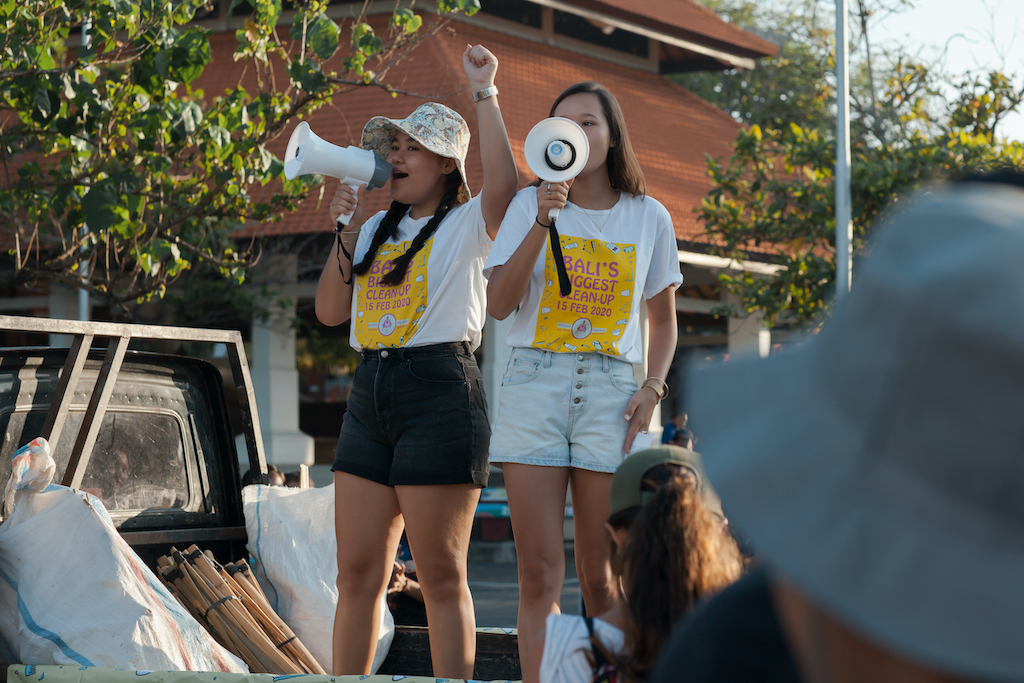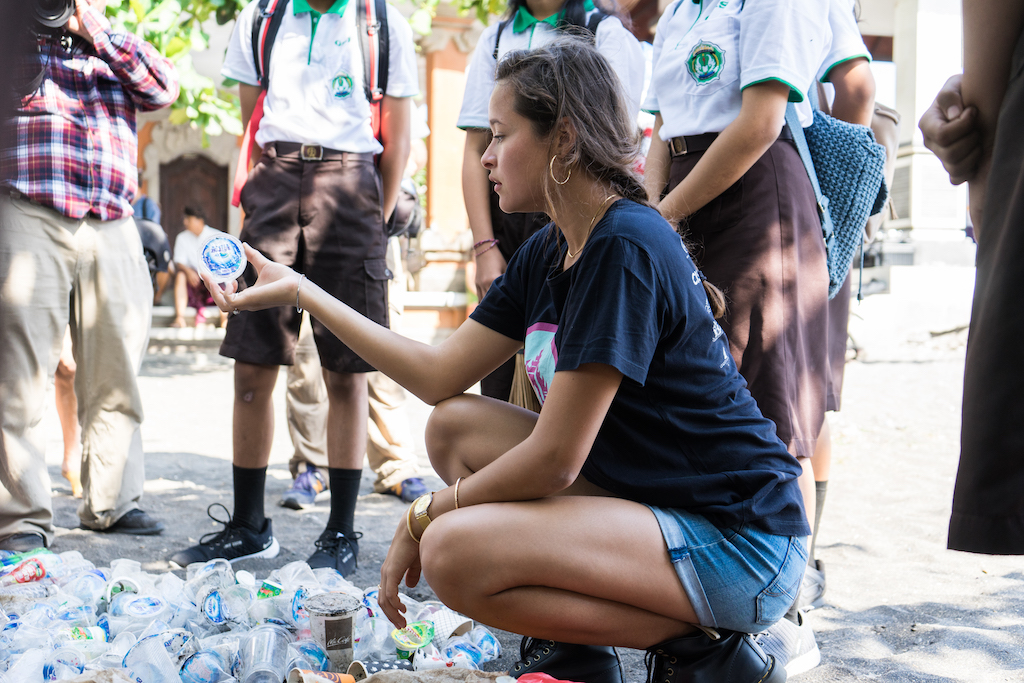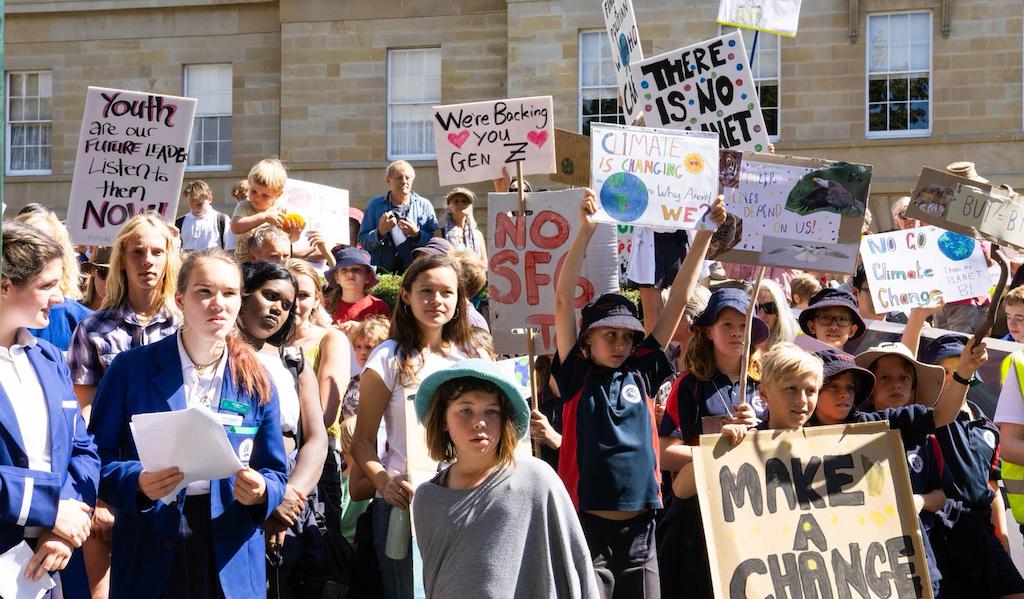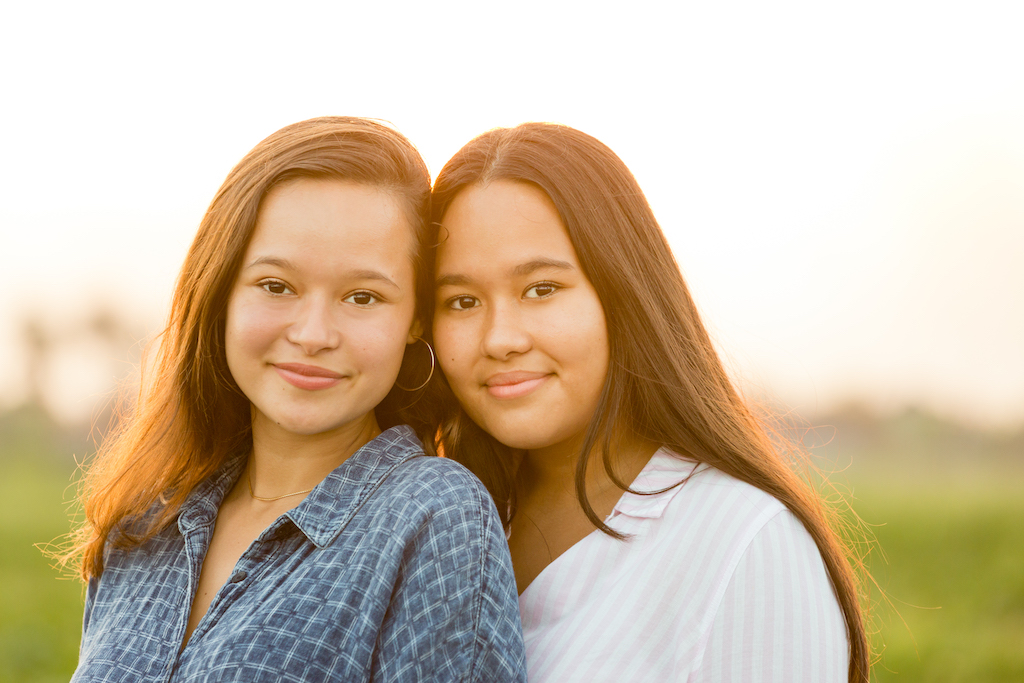Exclusive: Melati Wijsen Of Bye Bye Plastic Bags & Youthtopia ‘Systemic Change Is Key, We Need To Hold Those In Power Accountable’
12 Mins Read
In 2013, when she was just twelve years old, Melati Wijsen and her sister Isabel started Bye Bye Plastic Bags, the Bali-based movement that became a global youth-driven sensation to eliminate the use of plastic bags in Bali and elsewhere. Since then, youths all over the world have been refusing single-use plastics in order to raise awareness about the plight of our oceans, the environment and the climate crisis. Today, the inspirational 20-year-old, long-time vegetarian and star of the 2020 documentary Bigger Than Us, is focused on another initiative she founded, called Youthtopia, which empowers frontline young changemakers to create the impact they want to see. In this insightful interview, Melati talks to Green Queen about her activist journey and her work today, and shares her hopes for the future as well as her advice for other budding changemakers out there.
GQ: It’s been many years since you founded Bye Bye Plastic Bags with your sister Isabel and spearheaded the youth-led anti-plastic movement. What is your mission today, now that many more people are aware of the damage plastics are having on the environment?
MW:I think when we started, the mission was very clear. We wanted a plastic bag-free Bali, and I think the reason why we are where we are today is thanks to the clarity of that vision. You mentioned the anti-plastic movement, but the strength of Bye Bye Plastic Bags was that we really focused on plastic bags. It let us put our foot in the door to create this larger movement and create a bigger momentum than ever before, because people could understand what change exactly we were looking for. I guess the goal back then was very clear. Today, we’ve become a global movement. We have 57 teams in 30 countries all around the world, led by other young people. The goal now really is to help empower and inspire them to be able to create the change and implementation that we were able to, here in Bali. So that’s really what the long-lasting goal of Bye Bye Plastic Bags is now.

GQ: You’ve since started a new initiative, Youthopia. Why did you start it and how is it different to other campaigns out there?
MW: After almost eight years of being on the front lines of Bye Bye Plastic Bags, we’ve spoken to over half a million students, often online, and no matter what part of the world we’re in or which age group, whenever we share our story and how we as young changemakers were able to actually create change, we always got the same question: How can I do what you do?
Our mission here is really to help accelerate this positive change, because we know we don’t have the luxury of time and that we need more empowered young changemakers.
So that’s where Youthtopia comes in. We’re a community centric learning platform. We are a youth empowering ecosystem, where we work together with real life, frontline, young changemakers, who have their own projects and their own track record of change. We come together at Youthtopia to build these peer-to-peer programmes that help inspire and empower the rising young changemakers with the how to be a young changemaker. That’s the difference. Unlike Bye Bye Plastic Bags, we’re not only focusing on plastic pollution, but all the 17 Sustainable Development Goals. Our mission here is really to help accelerate this positive change, because we know we don’t have the luxury of time and that we need more empowered young changemakers.
GQ: Do you believe that young people of today will be able to save the world? Are younger generations the ones pushing for tidal change, as opposed to grown-ups?
MW: I definitely believe that we feel we have this massive responsibility to do everything in our power to make sure we’re working to a future that we’re proud of. You know, I think we’re seeing young people at a younger and younger age now getting involved with putting forward solutions. So I do believe a big driver of change is the younger generation.
GQ: How much did your time at Green School Bali shape your work today?
MW: Yes, of course, Green School was a beautiful school to attend. Both projects were not created during my time at Green School. But what I was provided at Green School was a community of support from teachers and individuals to do the work I do today.
GQ: An upcoming movie, Pulau Plastik, is set to be released on Earth Day (April 22). It follows the worsening plastic crisis in Indonesia. What’s your take on the film and is plastic pollution getting worse instead of better?
MW: Yes. Pulau Plastik is actually made by several of our friends or colleagues in the space of the no plastic movement that we’ve collaborated with before and look up to very much. We’re very much looking forward to being able to share and push Pulau Plastic out as much as possible. Because yes, as much as there is interest and willingness and attention that is being put on plastic pollution, in terms of action and change, policy-wise, the key word here is implementation. That’s why there isn’t as much significant difference in fighting plastic pollution, and that’s where the people behind the film are so important [sic] to continuously place the top-of-mind focus on the issue of plastic.
I think we have no other choice than to really change…Going back to normal doesn’t exist, because normal does not exist.

GQ: When it comes to sustainability and the climate crisis, do you ever feel depressed about the state of the world? Do you believe humanity can change?
MW: I think we have no other choice than to really change. If there’s one thing that we should have learned in the year 2020, is that business-as-usual can no longer work. Going back to normal doesn’t exist, because normal does not exist. And this, I think our generation really understands, because we have been given an opportunity to really change the way we go about our lives, whether that’s on a personal matter or in any position we are in, from being a CEO or manager, or a teacher, a mum, dad, or young changemaker. We can all enact changes on all these levels. That’s what’s really necessary.
GQ: How do you stay hopeful and motivated, despite so many challenges?
MW: Whenever I’m feeling down or overwhelmed, which is an emotion that I often feel in this space, I try and remember the bigger picture. I try to remember that I’m not alone. That’s the power of Youthtopia, with all these other changemakers coming together. That’s what brings me motivation and hope. I can already see so many of us, not waiting for permission to create change, but just going ahead and doing it.
GQ: A lot of your work focuses on what consumers can do. What about regulation and government action? How important a role do you think that plays?
MW: Well, I think with plastic bags, one part of it was empowering the individual. But I think we always were urging for policy change, because we understood that regulation is key. At the same time, it’s really important to focus on individuals because we can inspire and motivate people to create daily changes in their personal life. Of course, what we do need to start seeing is the systemic change and solutions that are accessible to all, ones that leave no one behind. I think regulation, policy change, systemic change, is what is key in any changemakers’ role, not only to inspire the individual, but to make sure that we’re holding those in positions of power accountable as well.
I can already see so many of us, not waiting for permission to create change, but just going ahead and doing it.
GQ: We’ve seen more governments and businesses step up in the past few months in terms of their sustainability efforts – or at least making public pledges about doing so. Are young people the driving force behind this trend and how much do you believe will amount to real action?
MW: In 2019, we saw millions of students, and at a completely unprecedented rate, show up to the streets, take a stand to demand and call companies out. You really felt this mass movement with huge momentum, driven by the young people, and it made everybody on all levels of the community to kind of take a moment and pause and reflect. I do think that politicians are starting to see that. Whenever we interact with the government, policymakers or world leaders and corporations, oftentimes, the excuses we hear is that people are not ready for it. What the year of 2019 showed with the uprising of young people and what they built all around the world was that yes – we are ready. I think that that has become a huge motivation for these policies and for these goals to come out into life. But now it’s really about the implementation because a headline and a viral article is not enough anymore. We need to see action.

We’re not seeing it happening fast enough. The goals that are being set are so comfortably far in the future. That’s where, again, the role of our generation comes in to help accelerate this change, because I think we’re part of the generation that understands the urgency of time. That we need to start acting or treating this emergency as an emergency that all of us are prioritising. Even though we’re seeing headlines, we’re not moving fast enough. For example, with Bye Bye Plastic Bags, we were on the frontlines for six years before a ban came into place. Before us, there were so many like-minded organisations who were fighting for the same item. It took so long to achieve a ban, on one single-item. I think our governments and the entire system needs to welcome change much faster and create easier ways for change to be implemented right now.
I think we’re part of the generation that understands the urgency of time.
GQ: If you had to tell someone to do one thing for the planet every day, what would it be?
MW: Where to start! I always feel a bit of conflict with this [question], when I have to come up with just one thing. Obviously, being in the space of saying no to plastic bags, that could always be my go-to, to tell people to find that one plastic item to eliminate from their life. It’s a symbolic first step that anyone can start with to make a difference. But I also believe that there’s another step where we can actually become active citizens, to understand what the local policies are, what the regulations are, why such products are being made in the first place and the consequences that flow from it. There are so many things you can do. I’ll add that it’s also about recognising and realising the strengths that you have as an individual and the resources you have around you.
GQ: You’re talking about going deeper into the causes of the problem, so with the documentary Seaspiracy coming out to bring attention to the role of the fishing industry in driving the plastic crisis, would you say that quitting seafood should also be on the list of things we ought to do for the planet?
MW: Yes, but one thing that I wish would have been the stronger point in the film is the interconnectedness of all of these issues. Not to create a divide between if I stop eating fish, I can start using a plastic straw. That breaks down the hard work that all of us are involved in, with the same mission of creating a much fairer, sustainable, just world. I think we need to be aware citizens. Aware of your own consumption, where the end-to-end of a product is coming from, whether that’s the fish on your plate or the clothes that we’re buying at the shopping mall. It’s all connected. You can’t cancel out one thing, then feel good about doing another.
It’s already difficult to get people to connect with large issues like plastic pollution, the fishing industry, and the climate crisis. We need to have more of these discussions about how we should be trying to be doing everything we can in our capacity. That’s why I believe in making solutions accessible to everyone.
I think we need to be aware citizens. Aware of your own consumption, where the end-to-end of a product is coming from, whether that’s the fish on your plate or the clothes that we’re buying at the shopping mall. It’s all connected.
For example, we can ask people to stop littering plastic, but what if the biggest problem in one region is waste management? There’s no system that functions properly to pick up that piece of plastic even if you put it into a bin, no separation system, no management. So we’re back to square one. That’s one of the challenges with individual action, that we can inspire the masses, but it’s based on hope and changes we can make right now. But if the solutions are not reaching us as well from top-down, from a systemic approach that leaves no one behind, people will start to lose hope and question their ability to create change.

GQ: So what’s your advice for other young girls out there who want to make an impact?
MW: What our work at Youthtopia is about this, to provide the next steps for young changemakers through masterclasses and workshops. My own personal first piece of advice, which helped me get started on my own journey, is to be very clear in the change you want to see. What exactly do you want to create an impact with? What is your goal? When you’re more specific, it’s easier for people to understand what you’re trying to achieve and what you’re trying to change in the community. We could have ended at “Bye Bye Plastic”. But we added the “Bag” because, I guess, it was the low-hanging fruit and we knew we could steer people in the direction by saying: if we can do it as 10 or 12 year olds, so can you. So step one, before you even start a team or create a business plan or strategy, just think very clearly and authentically as possible with your strengths and what you’re passionate about.
When I think about the future, I hope we can go back to living in connection with everything around us.
GQ: What do you hope for in 10 years time? Where do you see yourself and the world?
MW: In 10 years, we’re supposed to have achieved the 17 Sustainable Development Goals. I think if we can actually make it work, we will live and create a future that we can actually be proud of one where we’re living in circular systems, one where we are living in harmony with the natural world, not taking more than we need. That’s a philosophy and a way of life here in Bali that we call Tri Hita Karana, about being in harmony with the natural world, the community around you and the spirit within. It’s an old tradition and lifestyle, so interestingly enough, when I think about the future, I hope we can go back to living in connection with everything around us.
GQ: Finally, we always ask here at Green Queen Media – are you team rice or team noodles?
MW: Rice – I’m a Bali baby at heart, so I can eat rice for breakfast, lunch and dinner!
All images courtesy of Youthtopia / Melati Wijsen.




